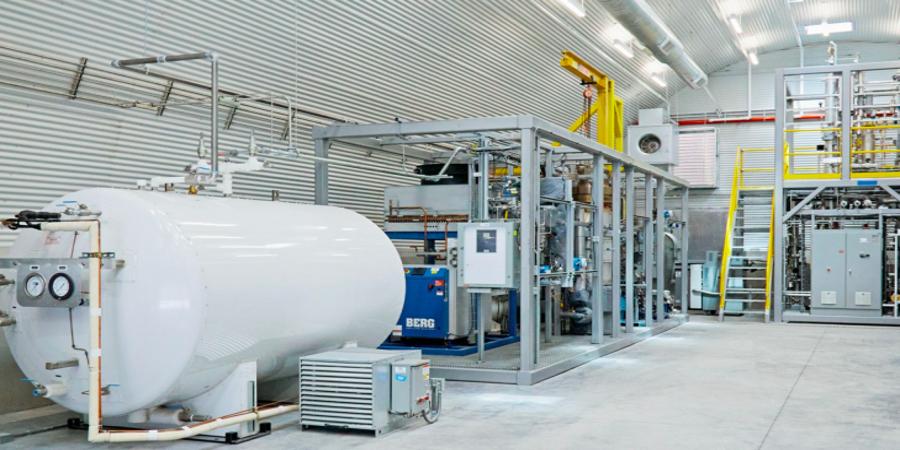Air Company, a startup that turns carbon dioxide into things like perfume, vodka, hand sanitizer and aviation fuel, is now on the U.S. Defense Department’s payroll, so to speak.
The JetBlue and Toyota-backed company struck an up-to $65 million deal to help the Air Force capture CO2 and turn it into “sustainable” aviation fuel on base.
Air Company said the carbon will initially come from industrial facilities — which is how the startup currently makes fuel at its “pilot plant” in Brooklyn, New York. But the startup also has its hands in direct air capture, which is “part of the technology that Air Company would be building out on site,” a spokesperson for the firm said.
The goal is not for Air Company to supply fuel but to provide the Air Force with tech to make the fuel itself. The company called this “harm reduction” to “avoid fuel transportation as a target for explosives.”
“The contract is tiered out over the next several years,” a spokesperson told TechCrunch, and Air Company aims to work with the Air Force to produce “tens of hundreds of gallons,” and later “tens of thousands of gallons,” of jet fuel.
The Department of Defense is both a notorious carbon polluter and cagey about how much fuel it burns. Researchers at England’s Lancaster University estimate that the DoD emits “more climate-changing gases than most medium-sized countries.” The same researchers argue that “action on climate change demands shuttering vast sections of the military machine.”
Sustainable aviation fuel can come from lots of things; feedstocks can include household waste, a variety of crops and used cooking oil. The source of the fuel, as well as how it’s produced and transported, determines whether it’s actually as sustainable as the name suggests.
Asked about its environmental impact, Air Company told TechCrunch that it exclusively uses renewable electricity to produce its fuel today, which it called “completely carbon neutral when burned.”
Source @TechCrunch



